Filter by
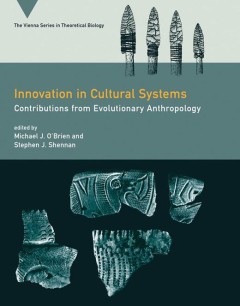
Innovation in Cultural Systems: Contributions from Evolutionary Anthropology
Here, leading scholars offer a range of perspectives on the roles played by innovation in the evolution of human culture. The contributors consider innovation in biological terms discussing epistemology, animal studies, systematics and phylogeny, phenotypic plasticity and evolvability, and much more.OCLC-licensed vendor bibliographic record.
- Edition
- -
- ISBN/ISSN
- 9780262259101
- Collation
- 1 online resource (xi, 284 pages) :illustrations.
- Series Title
- -
- Call Number
- -

The techno-human condition
A provocative analysis of what it means to be human in an era of incomprehensible technological complexity and change.OCLC-licensed vendor bibliographic record.
- Edition
- -
- ISBN/ISSN
- 9780262295666
- Collation
- 1 online resource (xi, 222 pages) :illustrations
- Series Title
- -
- Call Number
- -

Evolution and Culture: A Fyssen Foundation Symposium
OCLC-licensed vendor bibliographic record.
- Edition
- -
- ISBN/ISSN
- 9780262316224
- Collation
- 1 online resource (xvii, 296 pages) :illustrations.
- Series Title
- -
- Call Number
- -

Evolution, Gender, and Rape
"A Bradford book."Multidisciplinary critiques of the notion of rape as an evolutionary adaptation.OCLC-licensed vendor bibliographic record.
- Edition
- -
- ISBN/ISSN
- 9780262285155
- Collation
- 1 online resource (vi, 454 pages) :illustrations
- Series Title
- -
- Call Number
- -
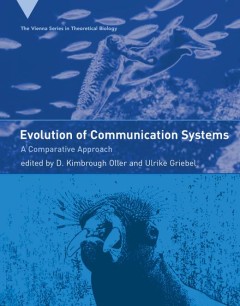
Evolution of Communication Systems: A Comparative Approach
Laying foundations for an interdisciplinary approach to the study of evolution in communication systems with tools from evolutionary biology, linguistics, animal behavior, developmental psychology, philosophy, cognitive sciences, robotics, and neural network modeling.The search for origins of communication in a wide variety of species including humans is rapidly becoming a thoroughly interdisci…
- Edition
- -
- ISBN/ISSN
- 9780262281010
- Collation
- 1 online resource (x, 338 pages) :illustrations.
- Series Title
- -
- Call Number
- -
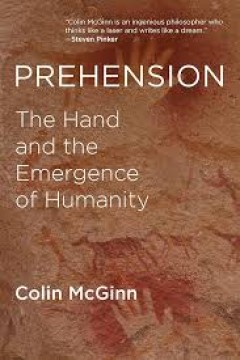
Prehension: The Hand and the Emergence of Humanity
"This book is a hymn to the hand. In Prehension, Colin McGinn links questions from science to philosophical concerns to consider something that we take for granted: the importance of the hand in everything we do. Drawing on evolutionary biology, anatomy, archaeology, linguistics, psychology, and philosophy, among other disciplines, McGinn examines the role of the hand in shaping human evolution…
- Edition
- -
- ISBN/ISSN
- 9780262331043
- Collation
- 1 online resource (ix, 191 pages)
- Series Title
- -
- Call Number
- -

A natural history of rape :biological bases of sexual coercion
"In this sure-to-be-controversial book, Randy Thornhill and Craig Palmer use evolutionary biology to explain the causes of rape and to recommend new approaches to its prevention. According to Thornhill and Palmer, evolved adaptation of some sort gives rise to rape; the main evolutionary question is whether rape is an adaptation itself or a by-product of other adaptations." "The book includes a …
- Edition
- -
- ISBN/ISSN
- 0585082006
- Collation
- 1 online resource (xvi, 251 pages)
- Series Title
- -
- Call Number
- -

Humanity's end: Why we should reject radical enhancement
"A Bradford book."""Arguments against radical enhancement have too often in the past been characterized by irrationalism and mysticism. Nicholas Agar presents the first cogent case for the rationality of opposing radical enhancement. Moving easily between science and philosophy, he argues for a species-relative conception of valuable experiences, according to which we have a strong reason to re…
- Edition
- -
- ISBN/ISSN
- 9780262289122
- Collation
- 1 online resource (viii, 219 pages).
- Series Title
- -
- Call Number
- -
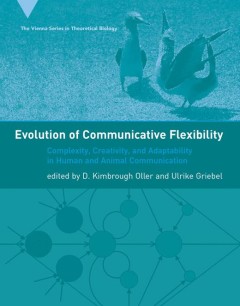
Evolution of communicative flexibility : Complexity, Creativity, and Adaptabi…
Experts investigate communicative flexibility (in both form and usage of signals) as the foundation of the evolution of complex communication systems, including human language.
- Edition
- -
- ISBN/ISSN
- -
- Collation
- 1 online resource (x, 356 pages) :
- Series Title
- -
- Call Number
- -
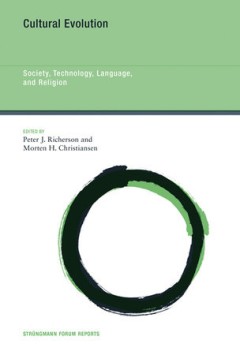
Cultural evolution : society, technology, language, and religion
Over the past few decades, a growing body of research has emerged from a variety of disciplines to highlight the importance of cultural evolution in understanding human behavior. Wider application of these insights, however, has been hampered by traditional disciplinary boundaries. To remedy this, in this volume leading researchers from theoretical biology, developmental and cognitive psycholog…
- Edition
- -
- ISBN/ISSN
- 9781461950356
- Collation
- 1 online resource (xi, 485 pages) :illustrations.
- Series Title
- -
- Call Number
- -
 Computer Science, Information & General Works
Computer Science, Information & General Works  Philosophy & Psychology
Philosophy & Psychology  Religion
Religion  Social Sciences
Social Sciences  Language
Language  Pure Science
Pure Science  Applied Sciences
Applied Sciences  Art & Recreation
Art & Recreation  Literature
Literature  History & Geography
History & Geography